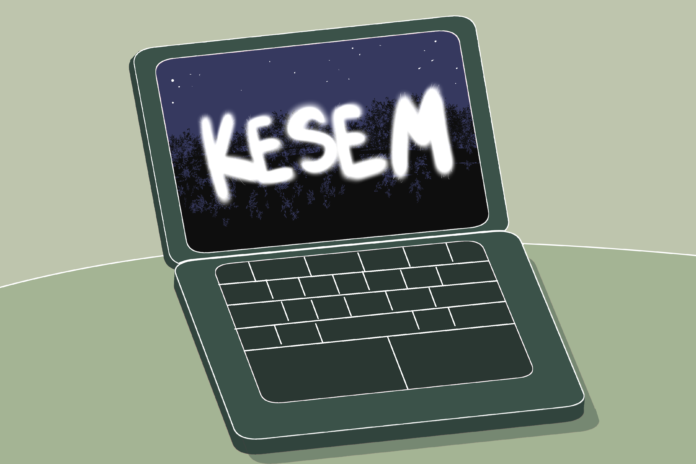Camp directors discuss transition to online camp this summer
Usually located in the wooded Tahoe Foothills, UC Davis Camp Kesem, the Davis chapter of the national Camp Kesem organization, serves children of cancer patients, cancer survivors or those who have lost family members to cancer. This year, the UC Davis student-run camp will continue remotely via Zoom for about 260 campers.
According to Tomer Fidelman, a third-year economics major and camp director, the Camp Kesem organization decided to move camp online in March, allowing the counselors more time to plan for the summer.
“That decision came relatively early in the pandemic, which was great because we have ample time to prepare,” Fidelman said. “We’ve been able to really focus on how we’re going to make this the best experience for our community.”
This decision seemed natural for him, as many campers come from a family that is immunocompromised, making the risk of contracting a respiratory disease higher for the Kesem community members.
“We’re serving a highly vulnerable population, and we should not be in a position where we might be endangering them,” Fidelman said.
Camp in a Box
Running from 9 a.m. to 8 p.m., there will be about four hours of programming each day, including camp games and arts and crafts. In addition, each camper will receive a box with materials such as markers, a journal and more.
“The activities we’ll be doing will be things that we can do from home like tie-dying,” said Armando Gonzalez, a fourth-year sociology major and camp director. “We’re sending all of our campers a little pot and a seed so they can grow a little plant.”
In normal circumstances, Kesem is an overnight camp with campers divided into cabin groups. According to Gonzalez, these groups will continue online, and campers will still be able to participate in a signature Kesem activity: the evening “Cabin Chat.”
“We ask our campers questions about how they’re feeling [and] things that they’re interested in so they can build a community and realize that there’s other people out there who are very similar to them and have similar experiences and that they aren’t alone,” Gonzalez said.
Online engagement
Kesem offers spots for kids aged six to 16 with a teen leadership program for 16 to 18-year-olds. Because of this age range, Gonzalez worries that the younger campers will struggle to stay concentrated.
“As a former counselor for the six-year-old bunch, I’m a little concerned about having them just sit in front of a screen and be focused and attentive for more than an hour at a time,” Gonzalez said.
However, Kesem’s many counselors, according to Gonzalez, are more than equipped to keep the campers interested.
“Typically, our ratio is about three campers for every one counselor, and so that makes it a little more manageable for the counselors to be giving them more direct attention,” Gonzalez said.
The Kesem community
Although the camp has had to remove all of the physical games and activities from the schedule to accommodate with social distancing, Fidelman said he believes UC Davis Camp Kesem will be able to retain the emotional connection that is, in his words, highly impactful for the kids.
“Sometimes, I think we can get disillusioned with the fact that if we’re not there in person, we might not be able to provide the same kind of support,” Fidelman said. “We’re really emphasizing here now that when we create our virtual camp schedule, we’re trying to retain all the emotionally connective parts of camp, all the parts that are cathartic and are healing and are great spaces for our counselors and our campers to connect.”
Although the camp is only six days long, in Fidelman’s experience, campers often use this time to talk for hours with others and bond over shared experiences. According to Fidelman, Kesem’s most important role is to facilitate this discussion and bring children with similar backgrounds together, a role it can still have over the internet.
“That’s been the call to action now; the fact that there is some emotional reserve there that we need to access so that connection is still there and still possible even over Zoom,” Fidelman said.
To Gonzalez, Camp Kesem is, at its heart, a community that does not require in-person meetings to serve its purpose.
“We talk a lot about the community that we are and how there isn’t really any physical location or anything physical that needs to be there for the power of the community to be felt,” Gonzalez said. “Times like this exactly show that. It’s an incredible group. It’s so much more than just a camp.”
Written by: Sophie Dewees — features@theaggie.org




